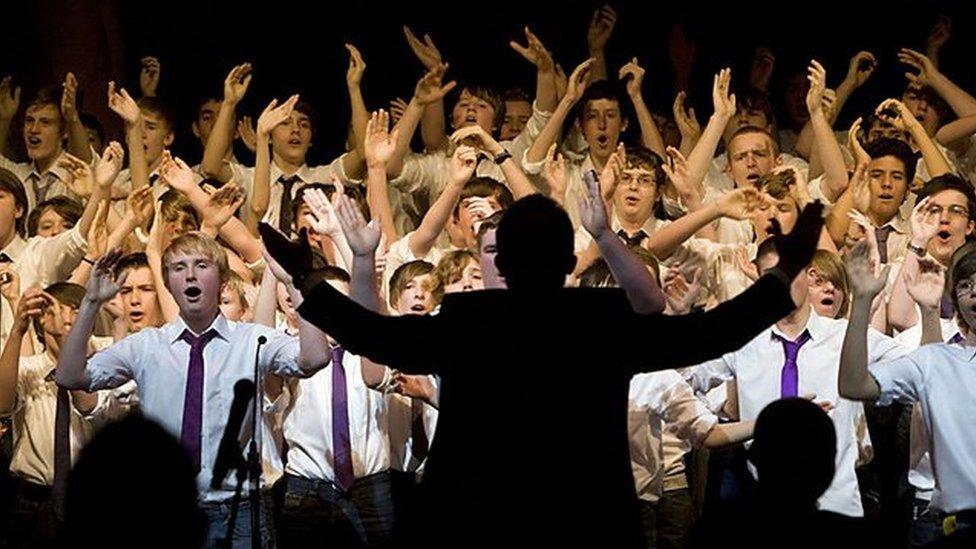Ladies of Rage: Musicians find a 'safe space' in sisterhood
- Published
Ladies of rage
Female and non-binary musicians who formed a network of artists say it has helped them find a "safe space" in the industry.
The Ladies of Rage music collective began in Cardiff and now has more than 400 members across Wales.
Focusing mainly on urban and Mobo (music of black origin) genres, it encourages greater racial and gender diversity.
During the pandemic, the group's members have supported each other with online gigs, playlists and chats.
Despite missing being onstage, its members are celebrating International Women's Day with local radio takeovers and a bilingual EP called Harddwch Du/Black Beauty which features only women of colour with lyrics exploring "being brown and Welsh" and Black Lives Matter protests.
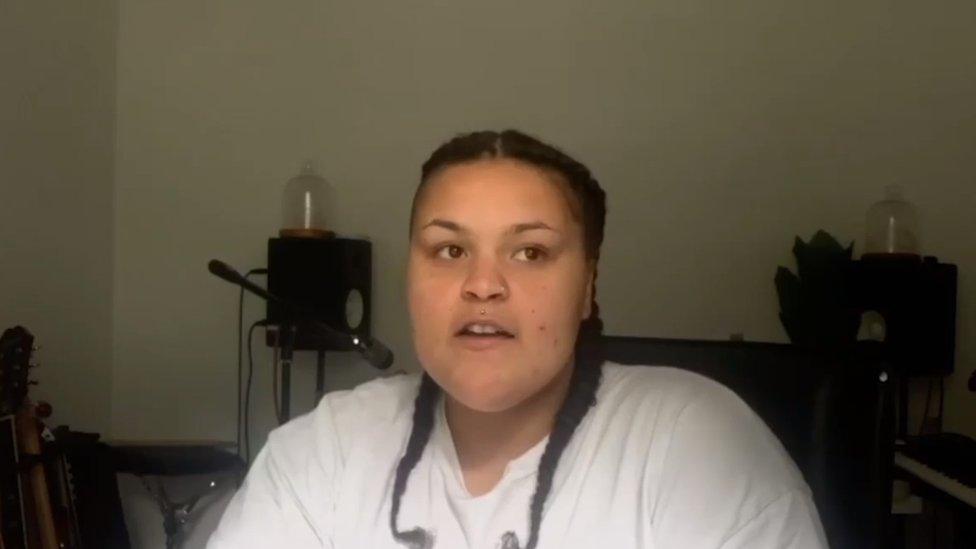
Singer Eädyth from Merthyr Tydfil has produced an EP with other Ladies of Rage members
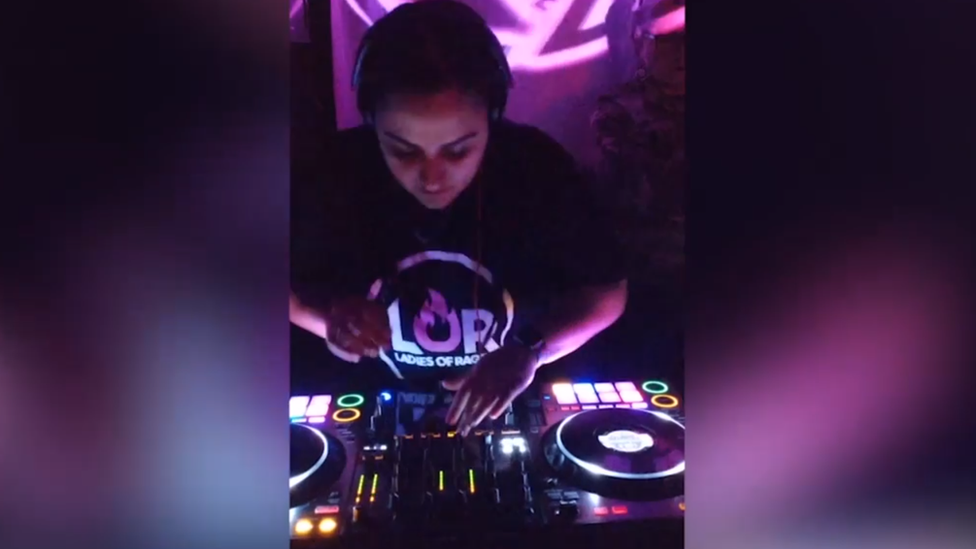
The women have learned new skills and honed their talents
The group has produced podcasts, mixtapes, tracks, poems, discussions and interviews for a takeover on digital radio station Dub Frequency Radio on Monday.
'Male allies'
The celebrations will be tinged with sadness though, as they pay tribute to much-loved south Walian producer Rob Stagg, known as Stagga, who was an integral part of the Cardiff underground music scene and died of a heart attack just before Christmas.
"His studio was just the perfect space for what we wanted to do," said founder Ffion Wyn.
"He was such a kind soul and really understood the ethos of what we were trying to achieve and just opened his doors up to us and encouraged some of the women that were attending the jam sessions to record with him."
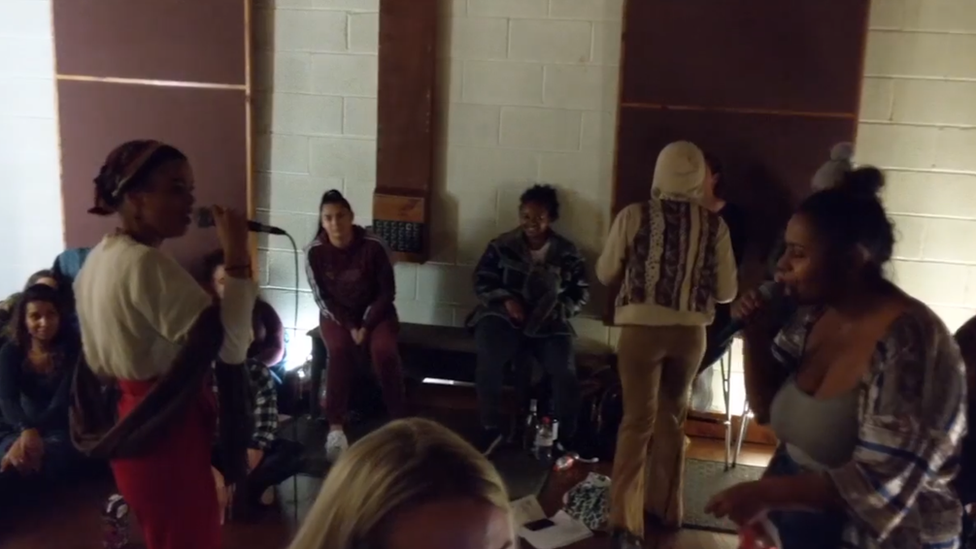
Before Covid, the Ladies of Rage enjoyed their jam sessions
Ladies of Rage member Amelia Unity said: "We need male allies to make change. I would never have had the confidence or self-belief to release any music if it wasn't for his encouragement, and it's thanks to him that I'm now learning to produce my own music."
She added the collective had been "life-changing" for her, personally and professionally.
"I've always been into hip hop and I've always been used to being the only woman - or in the minority at least - at events. So I'm used to just being around men.
"After having been to a few Ladies of Rage jams and it being like this gap, that I didn't even know was a gap, was filled... I felt safe, where before I didn't even realise I didn't feel safe because it was just normal."
'Wales is the land of song - so let's sing'
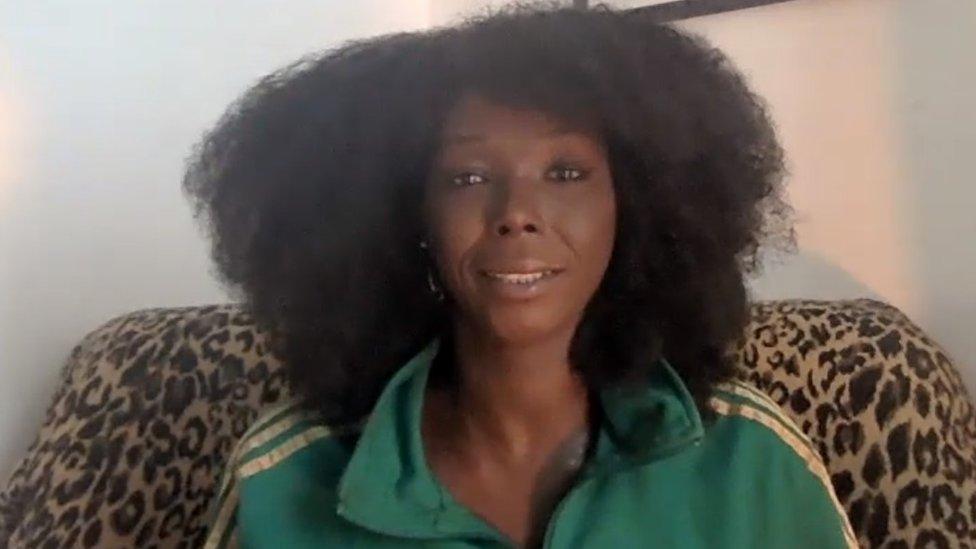
Singer and Ladies of Rage chair Dionne Bennett wants to nurture a new generation of musicians in Wales
Chair Dionne Bennett said the collective aimed to inspire a new generation of musicians, after she left Wales at a young age and pursued her career in London.
"I don't think I'd be doing what I'm doing without a group like this that supported me in my journey," she said.
"So it was absolutely essential for me as a singer and as a musician to do something to give back, to give other kids and give black women like myself the opportunities that I've had.
"Some members have gone back into education because of us, some members have increased their confidence, done things they would never have done before. We've upskilled each other, we're always continuing to share knowledge and experience, making sure that we're creating safe spaces so that members feel they can be heard and can be listened to.
"What we've done through the pandemic is basically be there to support each other; it's been quite hard not to be able to perform, you miss that sisterhood as well.
"We're Welsh and we need to create a vibrant music scene - and that comes from diversity, that comes from equality. It doesn't come from shutting people out. Wales is not just indie music, black music is not just hip hop. I just hope the next generation gets more opportunity here and can be proud to be diverse, Welsh and play black music - and why not? Wales is the land of song - so let's sing."
'If we don't sing about it, the narrative won't change'
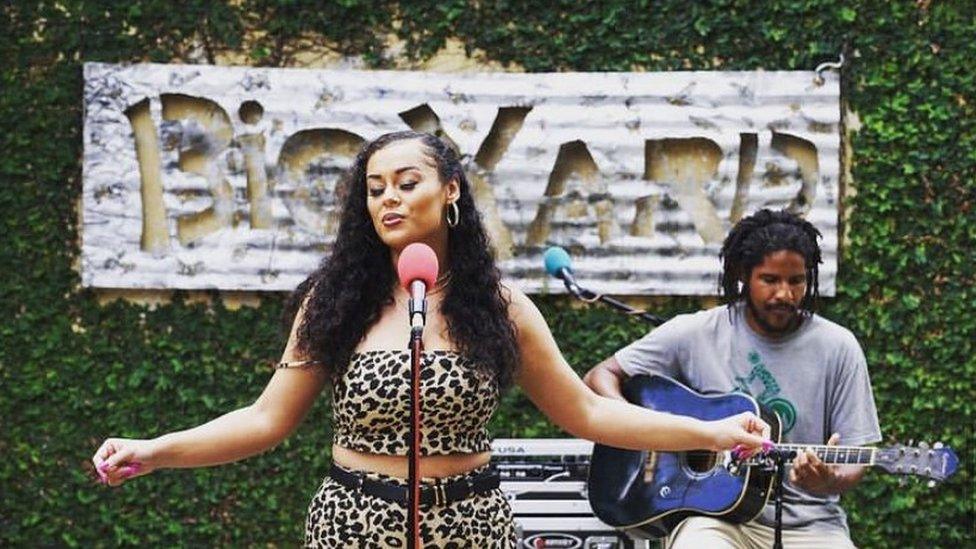
Aleighcia Scott said the women have supported each other while they are unable to perform during the pandemic
Ladies of Rage member and reggae artist Aleighcia Scott, who features on Black Lives Matters protest song Freedom, said: "I've been involved for a few years now and I first remember seeing the group on Facebook and I thought it was a really great space to feel safe and for encouragement. It's really nice to have a gathering of like minds.
"I definitely feel there needs to be more representation in the Welsh industry as a whole. But I'm glad now these conversations are being had. If we don't talk about it or sing about it the narrative won't be changed."
As a full-time performer, Aleighcia was used to doing shows four or five times a week before the pandemic hit. So Ladies of Rage has helped her to adjust as live music was shelved, venues closed and audiences were ordered to stay home.
"I think I've done three shows in a year," she said. "It's definitely been something I've had to adjust to, working from home and online live sessions. But Ladies of Rage has been a place where people can talk about how they're feeling or it's a place to build and grow.
"I'm just looking forward to when everything is back to whatever normal is going to be, when the group can have even more ideas and we can come together and make something amazing."

HERE COME THE BRIDES: Happily ever after begins at The Wedding Dress Shop
STRICTLY AMY: CROHN'S AND ME: The Welsh dancing star shows us the reality of living with Crohn's disease

- Published28 February 2021
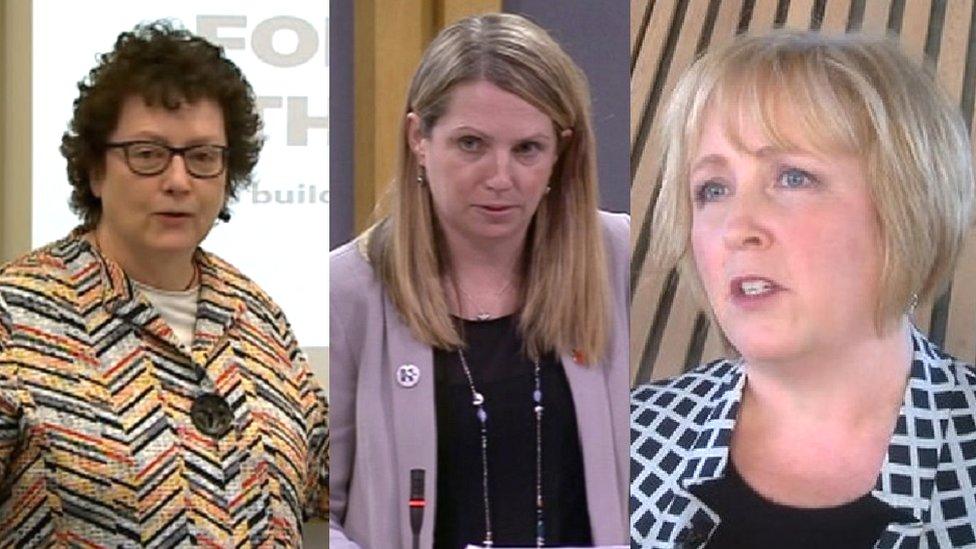
- Published17 February 2021
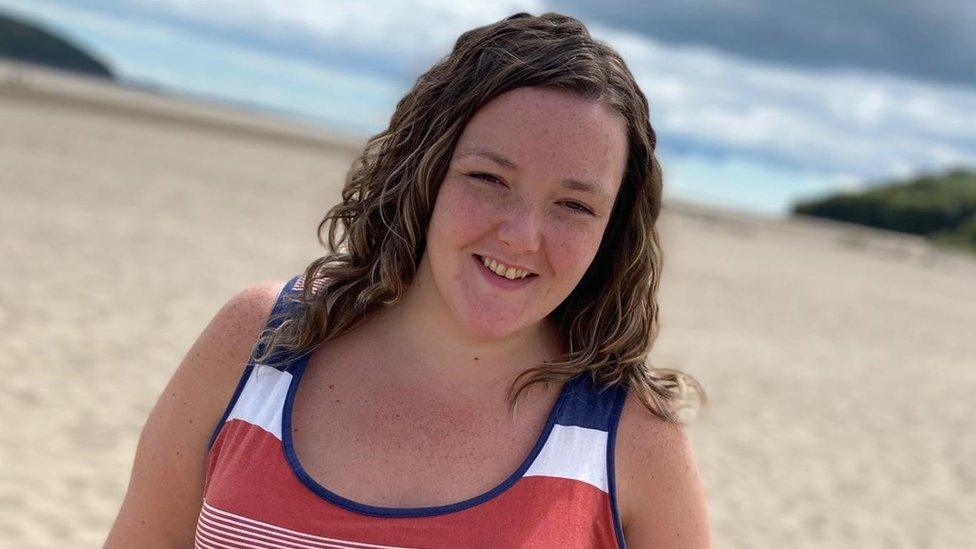
- Published14 July 2020
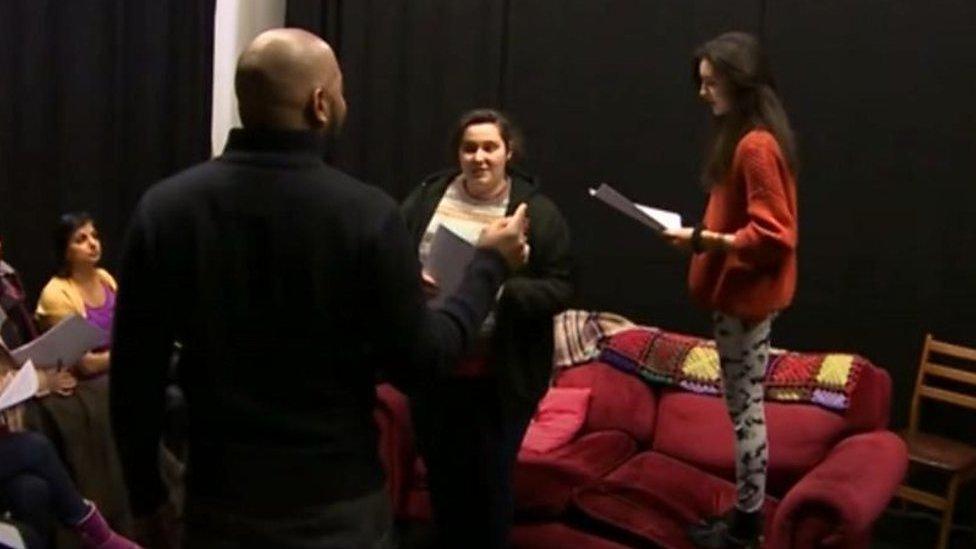
- Published4 March 2021
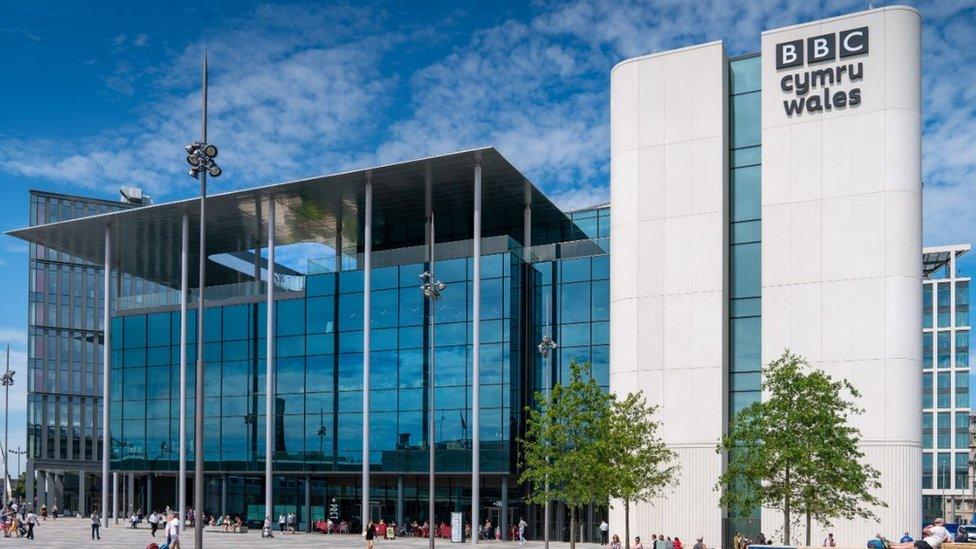
- Attribution
- Published25 February 2021
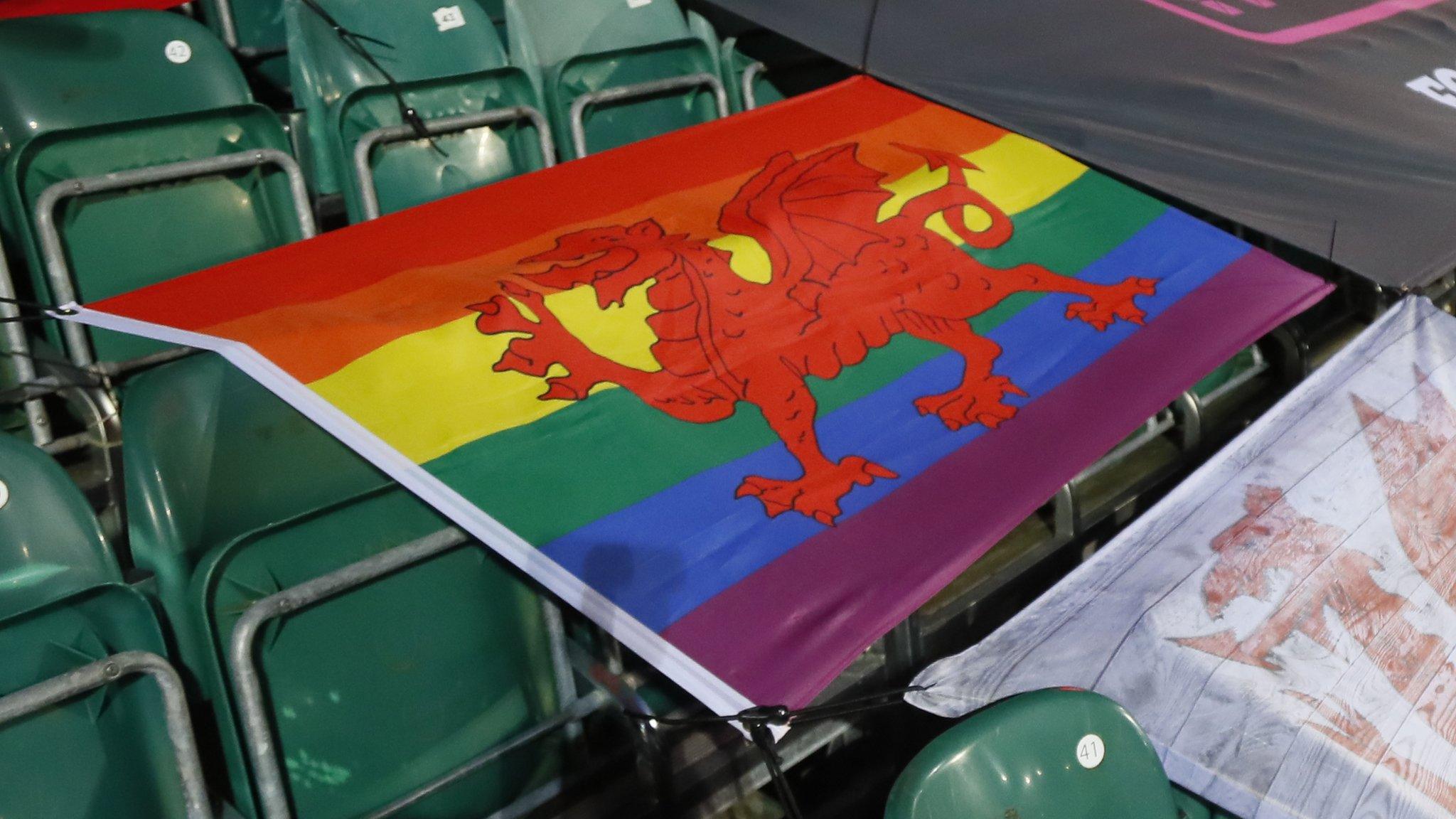
- Published13 April 2018
